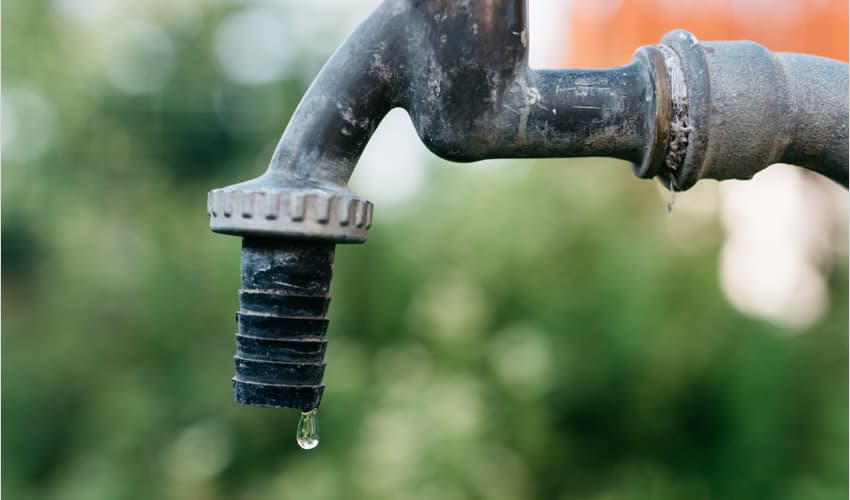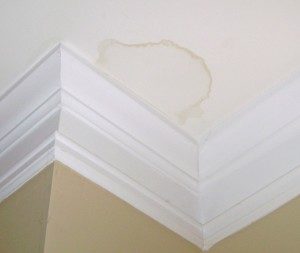Understanding the Six Most Frequent Causes of Water Leaks in Homes
Understanding the Six Most Frequent Causes of Water Leaks in Homes
Blog Article
Have you been looking for info about Common Water Leaks In House?

Leaks not only create waste of water however can additionally create unneeded damage to your residence and promote undesirable organic development. Sadly, water leaks might go undetected given that a lot of the pipework in our residence is concealed. By understanding and looking for daily circumstances that cause leakages, you can secure your house from future leaks and unneeded damage. Today, we will look at six leak causes that may be creating your pipes to drip.
Trespassing origins
A lot of water leaks start outside the house instead of inside it. If you see an abrupt reduction in water stress, state in your faucet, take some time to head out as well as analyze your yard. You could notice damp patches or sinkholes in your lawn, and that might suggest that tree roots are attacking water lines causing water to permeate out. You can have your plumber check for invasion, specifically if you have trees or shrubs near your property.
Rusty water systems
This might be the reason of staining or bending on your water pipelines. If our plumbing system is old, take into consideration changing the pipelines since they are at a higher danger of deterioration than the more recent versions.
Malfunctioning Pipeline Joints
The factor at which your pipelines attach is often the weakest web link in the waterline. Pipe joints can degrade with time, causing water leakages. Unfortunately, most of pipeline joints are not quickly noticeable. If you have loud pipelines that make ticking or banging noises, particularly when the hot water is switched on, your pipe joints are probably under a lot of pressure. It is recommended to have your plumber check your system yearly.
Instant temperature adjustments.
Severe temperature changes in our pipes can create them to expand and also get suddenly. This expansion and tightening might trigger fractures in the pipes, specifically if the temperature are below freezing. It would be best if you watched on exactly how your plumbing functions. The visibility of the formerly discussed circumstances often indicates a high risk.
Poor Water Connectors
At times, a leak can be triggered by loosened hose pipes and also pipes that supply your home appliances. In situation of a water links leak, you may see water running directly from the supply line or pools around your devices.
Blocked Drains
Blocked drains pipes might be annoying as well as inconveniencing, yet they can often wind up causing an overflow causing burst pipes. Maintain getting rid of any type of products that might drop your drains that might obstruct them to stay clear of such hassles.
All the above are root causes of leaks but not all water leakages arise from plumbing leaks; some leakages could come from roofing leakages. All leakages should be repaired promptly to stay clear of water damage.
Leakages not just cause waste of water yet can also cause unnecessary damages to your house and also advertise unwanted natural growth. By looking and also recognizing for everyday circumstances that trigger leakages, you can protect your home from future leaks and unnecessary damage. Today, we will look at six leak causes that may be triggering your pipelines to trickle.
At times, a leakage can be created by loosened hose pipes as well as pipes that supply your devices. In case of a water connections leak, you might notice water running directly from the supply line or puddles around your appliances.
How To Check For Water Leak In Your Home
How To Check for Leaks
The average household's leaks can account for nearly 10,000 gallons of water wasted every year and ten percent of homes have leaks that waste 90 gallons or more per day. Common types of leaks found in the home are worn toilet flappers, dripping faucets, and other leaking valves. These types of leaks are often easy to fix, requiring only a few tools and hardware that can pay for themselves in water savings. Fixing easily corrected household water leaks can save homeowners about 10 percent on their water bills.
To check for leaks in your home, you first need to determine whether you're wasting water and then identify the source of the leak. Here are some tips for finding leaks:
Take a look at your water usage during a colder month, such as January or February. If a family of four exceeds 12,000 gallons per month, there are serious leaks.
Check your water meter before and after a two-hour period when no water is being used. If the meter changes at all, you probably have a leak.
Identify toilet leaks by placing a drop of food coloring in the toilet tank. If any color shows up in the bowl after 10 minutes, you have a leak. (Be sure to flush immediately after the experiment to avoid staining the tank.)
Examine faucet gaskets and pipe fittings for any water on the outside of the pipe to check for surface leaks.
Undetected water leaks can happen without the home or business owner even realizing. If you suspect a water leak, but not able to find the source. It is time to contact a professional water leak detection service, The Leak Doctor.
How To Find a Water Leak In Your Home
https://www.leakdoctor.com/blog/How-To-Check-For-Water-Leak-In-Your-Home_AE197.html

Do you appreciate reading up on How to Find Water Leaks? Try to leave a remark further down. We would be pleased to hear your feelings about this blog. We hope that you visit us again in the near future. Sharing is nice. You won't know, you may just be helping someone out. I appreciate reading our article about How Fast Water Damage Can Ruin Your Home.
Go Deal Report this page